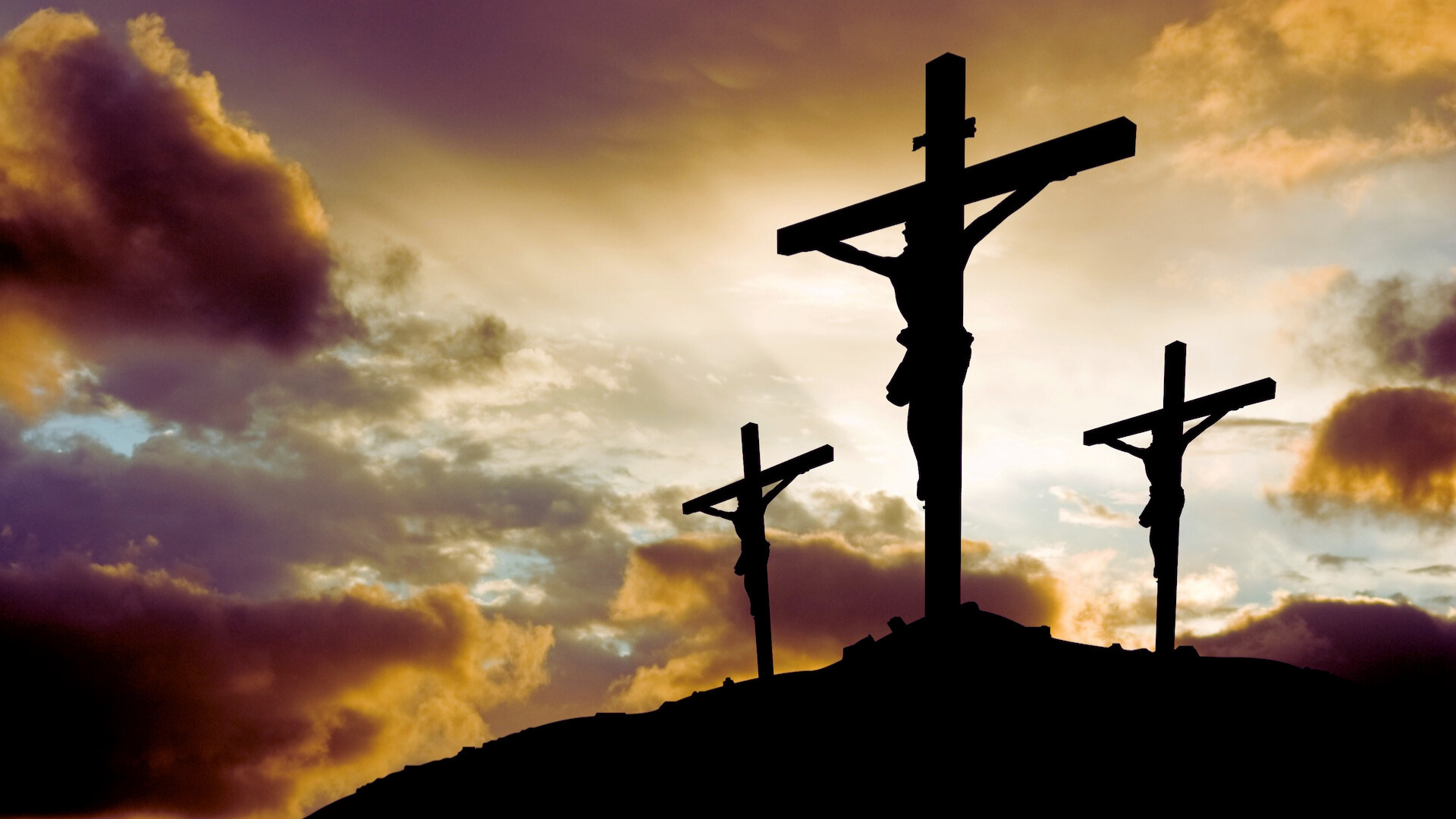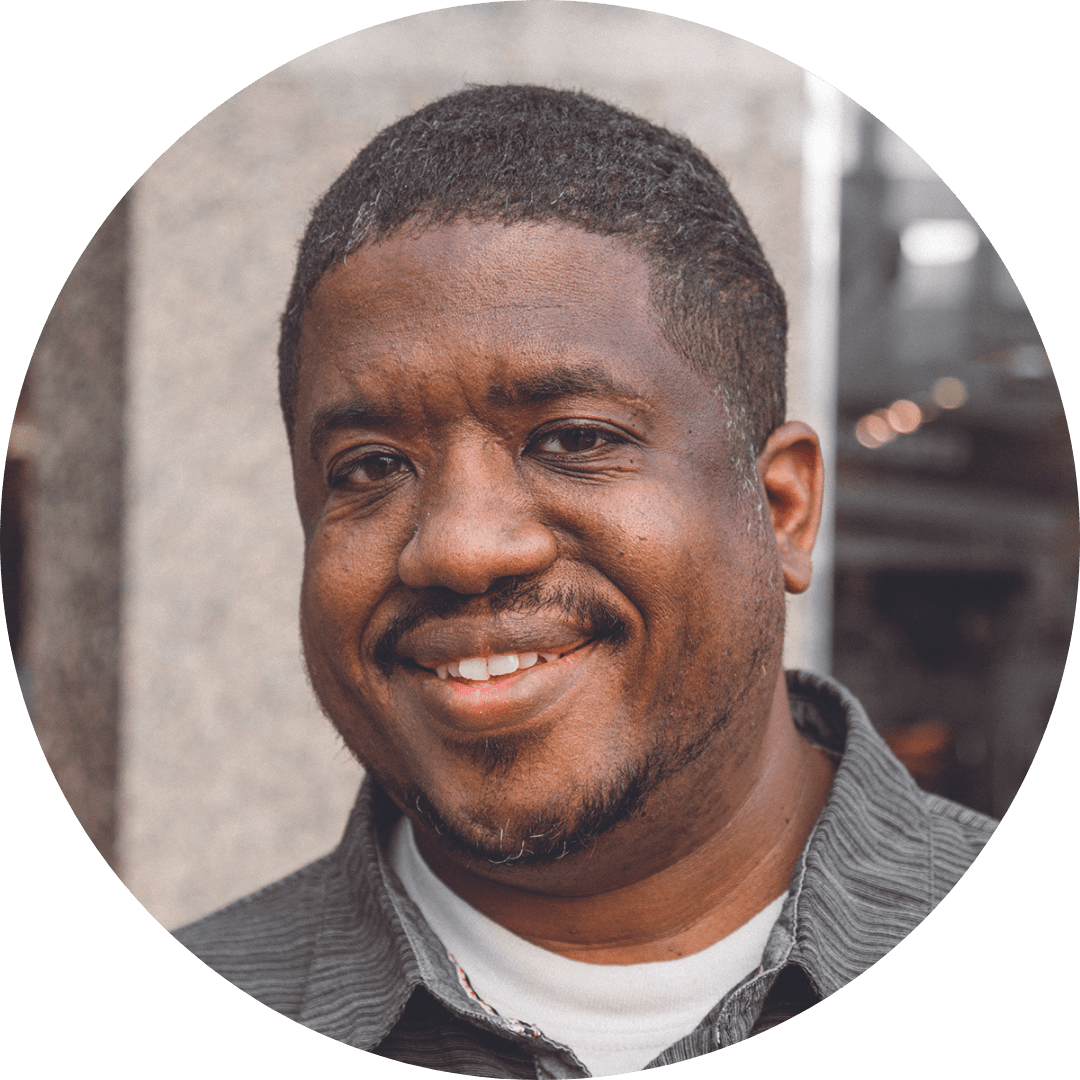This is the final piece in our series examining Negro spirituals, a genre of music with a rich legacy in American history and a deep impact on popular culture. Make sure to check out the introduction, an interview with expert choral conductor and arranger Dr. Rollo Dilworth.
If you’re like me, your introduction to the spiritual “Were You There?” was most likely as part of a Good Friday service.
When I served as a copastor at Sunset Covenant Church in Portland, one of our members was known for singing this song. A stately, reserved elder named Sam Lowe, he was one of a few consistent Black faces in the church besides my own. When I was helping to plan the Good Friday worship service and I heard he wanted to sing it, I offered to accompany him on the piano—but he courteously declined. He chose instead to sing it a capella.
After I heard him sing it, in the context of that service, I understood why.
Were you there when they crucified my Lord?
Were you there when they crucified my Lord?
Oh, oh, oh! Sometimes it causes me to tremble, tremble, tremble.
Were you there when they crucified my Lord?
Before I heard Sam sing it, I knew the words, but I had never sung it myself nor heard it sung in person. And in my mind, I knew it was a song about the crucifixion—an obvious choice for Good Friday. But I expected it to feel like, well, any other hymn or spiritual song.
It’s worth noting that if the song were written from the third person point of view, it would be a very different song. We would sing, “They were there when they crucified my Lord.” The crowd of onlookers would be reduced to an amorphous “they.”
But that’s not how the song was written. Whether it’s in a book, a play, or a song, the second-person perspective places the reader, listener, or audience into the story as a participant.
So when you listen to someone sing “Were You There?” it feels less like a performance and more of an interrogation. The singer takes on the role of a grizzled detective, sitting in the interview room of a police precinct. And who’s the prime suspect? You are.
“The song is in search of a witness,” Dr. Dilworth told me. “It’s almost accusatory. ‘Who was there? Were you there? And if you were there, did you stand by? Did you participate? Why didn’t you do something?’”
When I spoke with him for this series, Dr. Dilworth mentioned that the accusatory nature is confirmed not only through the lyrics but in its melodic framing.
“The first time you sing it, it’s fairly low. The tonal range is minimal. But the second time, the melody is raised up, giving you a sense that the singer has escalated the question. ‘Since you didn’t answer the first time, I’m gonna ask you again…Were you there?’”
But then it turns on a dime.
“The next set of pitches are the highest part of the whole melodic sequence,” said Dr. Dilworth, referring to the “oh, oh, oh” phrase.
“I mean, the hurt, the anguish, the wailing… When it says, ‘Sometimes it causes me to tremble,’ the truth is we don’t know exactly if the trembling is in despair, weeping, anger, angst, or confusion. Whatever it is, we can tell from the melody by the time it reaches that third ‘tremble,’ the singer has found themselves at the lowest point possible, both emotionally and melodically.”
He continued, “Only then does it ask the first question one more time, almost rhetorically: ‘Were you there?’”
When I heard Sam Lowe sing “Were You There?” his rich baritone was subdued in a tone of mourning. And I felt convicted. I wasn’t there, I thought. But what if I had been? What would I have done?
Not only does “Were You There?” need no accompaniment, but its tempo communicates the gravity of its message through the rests between each phrase. But as Sam sang them, the rests were longer than usual. They were like rhetorical pauses, meant for us to think about the question before answering.
“Were You There?” is a song that respects the silence.

As I listened to Sam that day, I thought about my life and the ways I have fallen short of God’s ideal. I thought about the temptations I’ve faced and given into, the ways in which my choices have shown a lack of love and concern for people around me. I also remembered some of the awkward, difficult conversations I’ve had with people about these issues. I thought about conflicts simmering under the surface, revolving around things both said and unsaid.
I also thought about how I’ve felt on the other side of those conflicts, when I’ve been the one wronged. I remembered how irritated I’ve been in scenarios where the person I’m trying to confront is too busy being defensive to listen to me. When their words of denial come across as minimizing or delegitimizing.
Many times when a person in front of you is in painful anguish, even if the situation is partly their fault and you had nothing to do with it, it’s possible that the most godly thing to do is just to take it. To absorb the brunt of their lashing out and mentally ask God for forgiveness—either theirs or yours—because, by and large, we humans don’t know what we’re doing. We’re not always fully aware of the impacts our choices have on others. (To be clear, I’m not suggesting that someone in an abusive scenario at home or at work should just put up with it indefinitely. If you are in danger, it’s important to find safety.)
But especially if you’re in a vocational ministry role in the church or a nonprofit where you are regularly serving people in need, there might be moments where God invites you to receive someone else’s vitriol without throwing it back in their face.
Sitting quietly during a soulful rendition of “Were You There?” is a great way to practice that. When Sam Lowe was singing, “Were you there?” I wasn’t about to say, “Well actually, Sam, that was over 2,000 years ago, so…”
I just sat there.
Peter was sure he knew how he would react to Jesus’s crucifixion. He swore that he would defend Jesus. But at his lowest moment, Peter ended up doing the exact opposite, denying that he was even one of his disciples.
I don’t know what I would have done if I’d have been there that day.
But I’ve been in Peter’s shoes. I’ve felt the burden of disappointment and the sting of guilt. I’ve felt tortured by past choices, looking to escape the repercussions of my behavior. I can think through my mental catalog of life experiences, point to a similar situation, and remember what it was like.
And that’s the point of Good Friday. We cannot experience the true joy of salvation without facing our need for a Savior. I was there and will, no doubt, be there again.
But were you?














